Idioms are cool. Idioms are funny. But most of all, idioms are handy. Yes, sir. Idioms can effectively convey an idea in the clearest way possible without even mentioning that idea directly. That’s why I love idioms, and that’s why last week, in collaboration with Lingoda, I brought you 10 super common idioms used by native speakers. So this week, I’ve decided to carry on with more awesome idioms, only this time, related to the weather.
But wait, is it the meaning or the form of the idiom that has to do with the weather? In most cases, only the form, but in other cases both. Let’s go then, and don’t forget to share these pictures with other English learners or teachers.
get wind of something
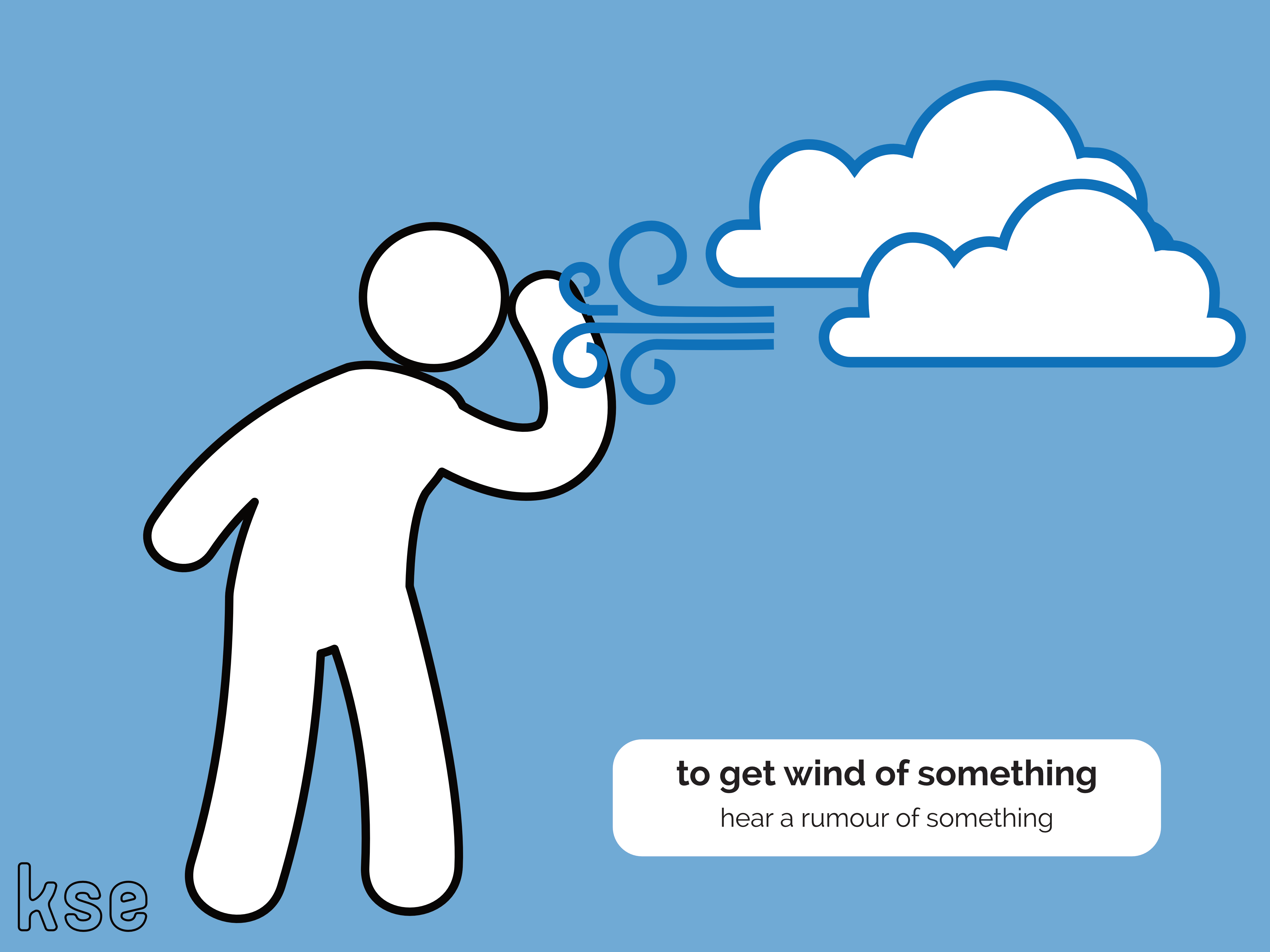
This is how all great rumours spread: when the wrong person gets wind of the right gossip. If you «get wind of something», you begin to suspect that something is happening or you hear a rumour of something. Here we have some examples of sentences with this idiom, taken from the Oxford Dictionary:
Marty got wind of a plot being planned against him.
He shows up at pretty much any event his office gets wind of.
save up for a rainy day
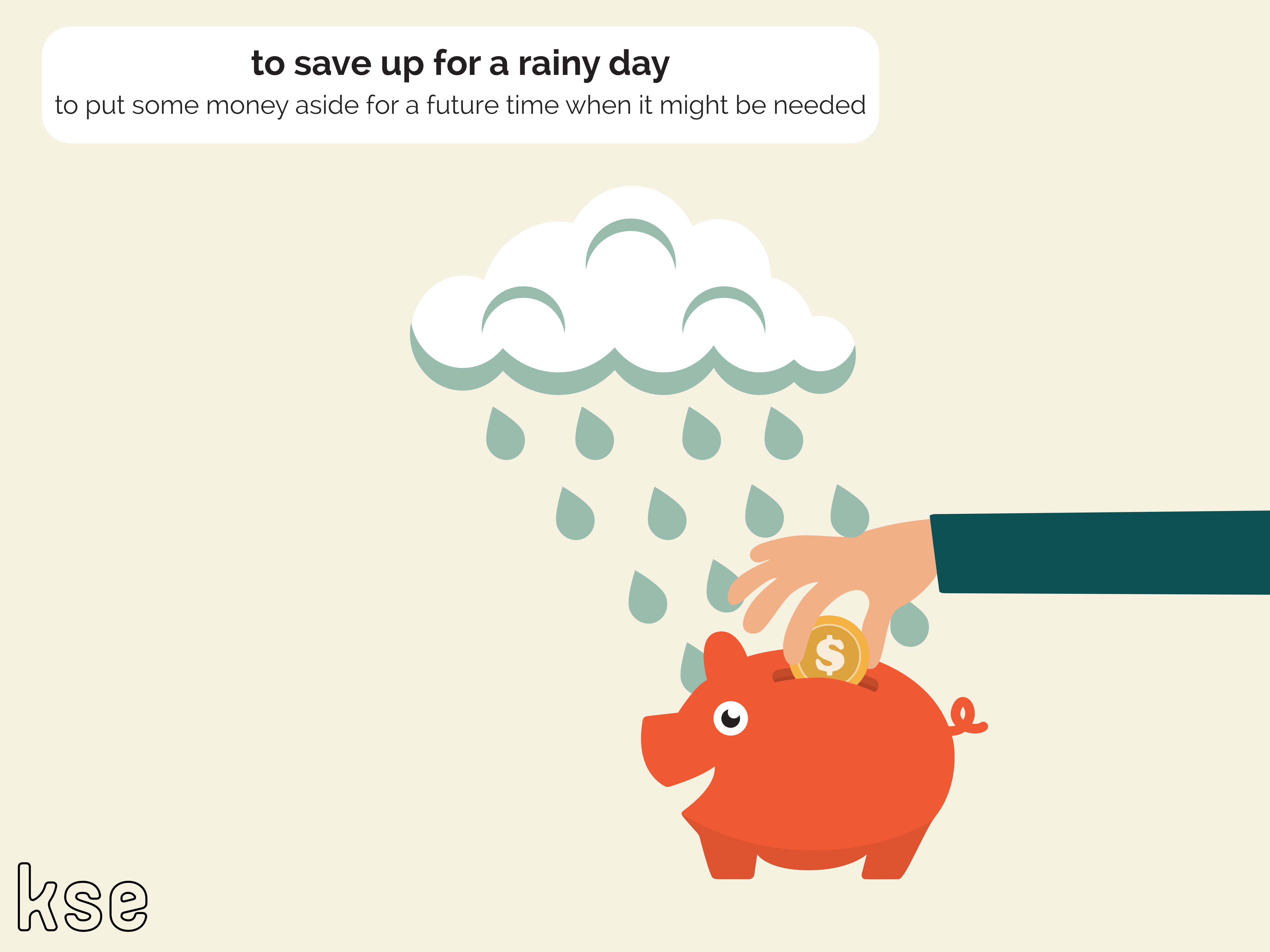
In this common idiom, the main part is «a rainy day». This expression refers to a «possible future time of hardship or relative poverty». When we add the phrasal verb «save up», we mean to put some money aside for whenever it may be needed. Here we have some examples:
Once you have the basic home comforts, it’s important to save up for a rainy day.
Everyone needs money in the bank saved up for a rainy day.
rain cats and dogs
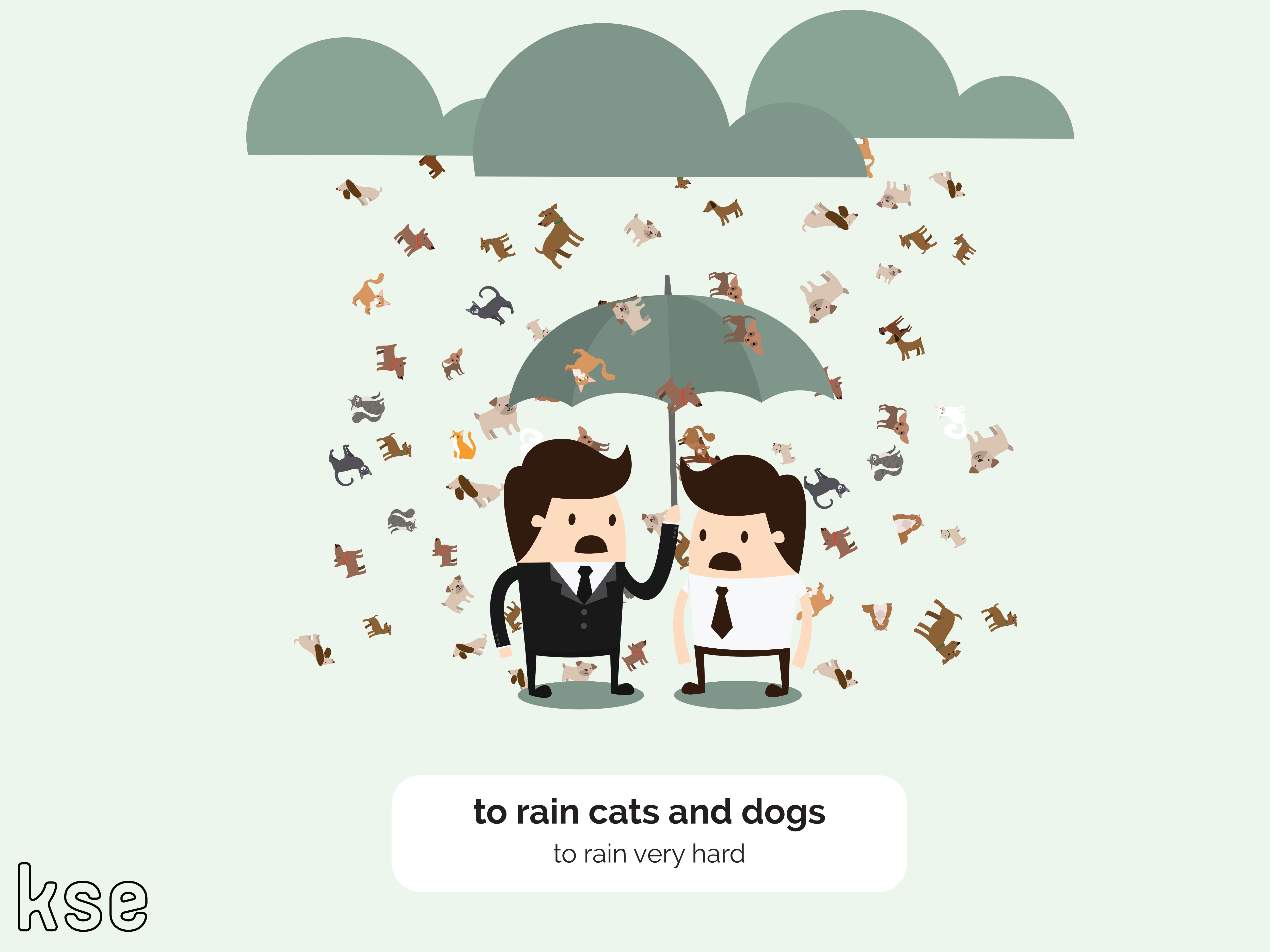
If it’s raining cats and dogs outside, you’d better take an umbrella with you or even stay in, for that matter. The idiom «rain cats and dogs» means to rain very hard or a lot. In this case, the form of the idiom has to do with the weather (i.e.: rain) and so does the meaning.
I was going to go shopping, but it suddenly started raining cats and dogs, so I stayed home.
Spring is weird: some days it’s sunny while others it can be raining cats and dogs.
come rain or shine
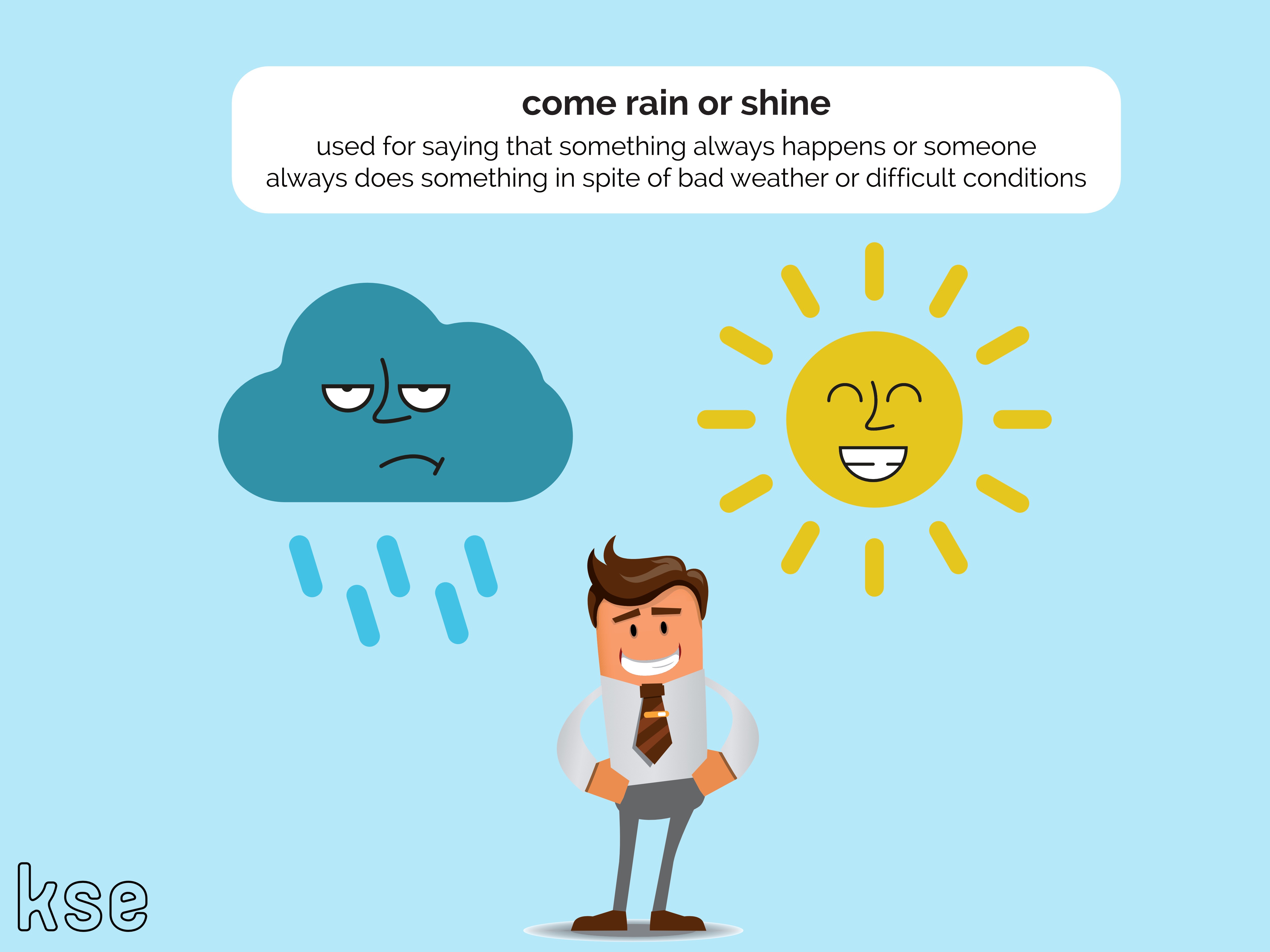
Be careful with this idiom: the verb «come» never changes here. The meaning of this usual idiom is «whatever happens» or «whatever the weather is«. So if someone supports you «come rain or shine», it means that they will be there for you no matter what. Let’s see a couple of examples:
I’ll alway be there for you, come rain or shine.
John goes jogging every single day, come rain or shine.
on cloud nine
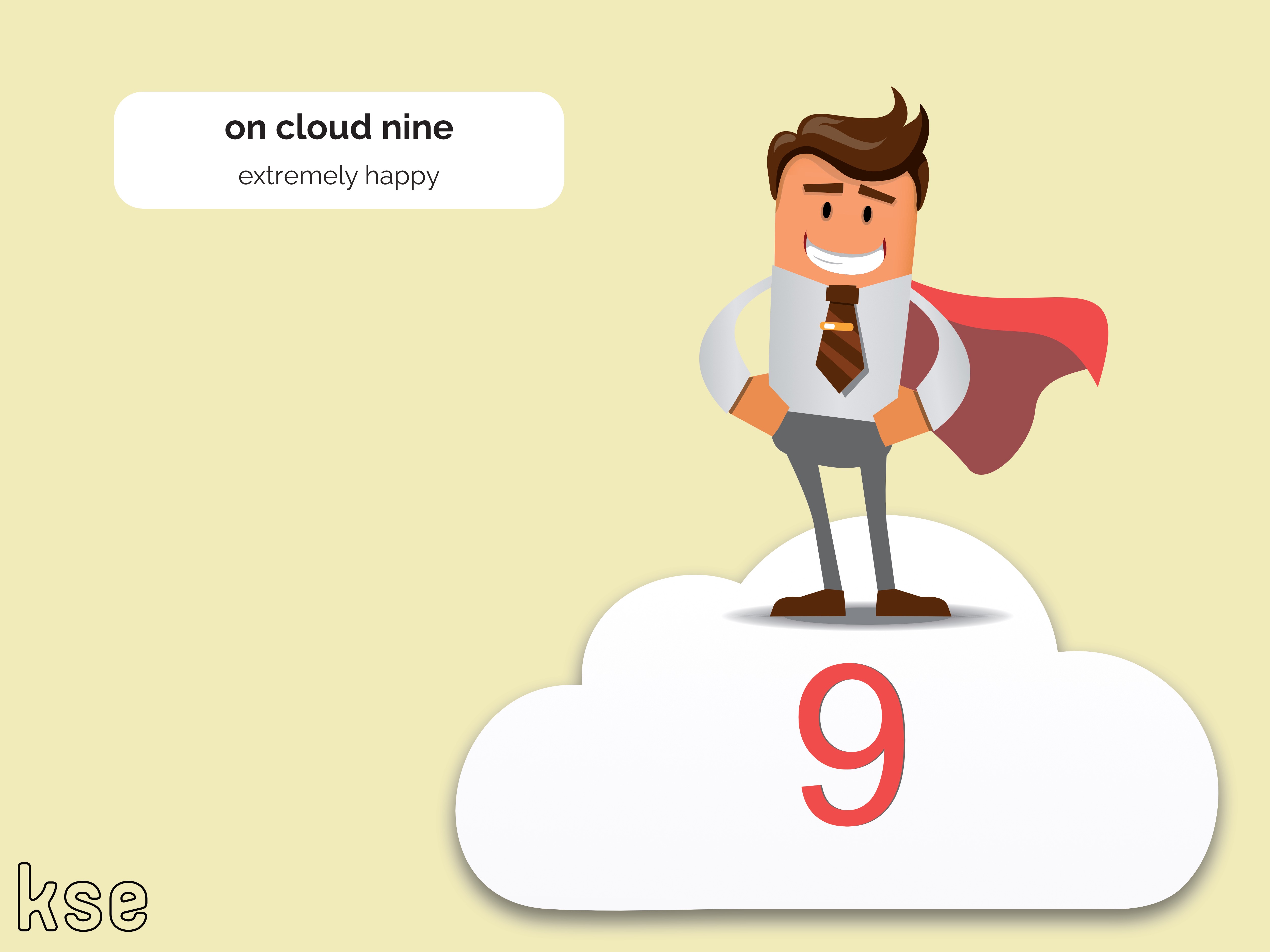
If you’re «on cloud nine», you are over the moon – which, by the way, is another idiom. So if you’re «on cloud nine» or «over the moon», you are extremely happy or delighted.
Ben was on cloud nine whenever she was around.
They’ve just had a baby, so they’re on cloud nine all day long.
under the weather
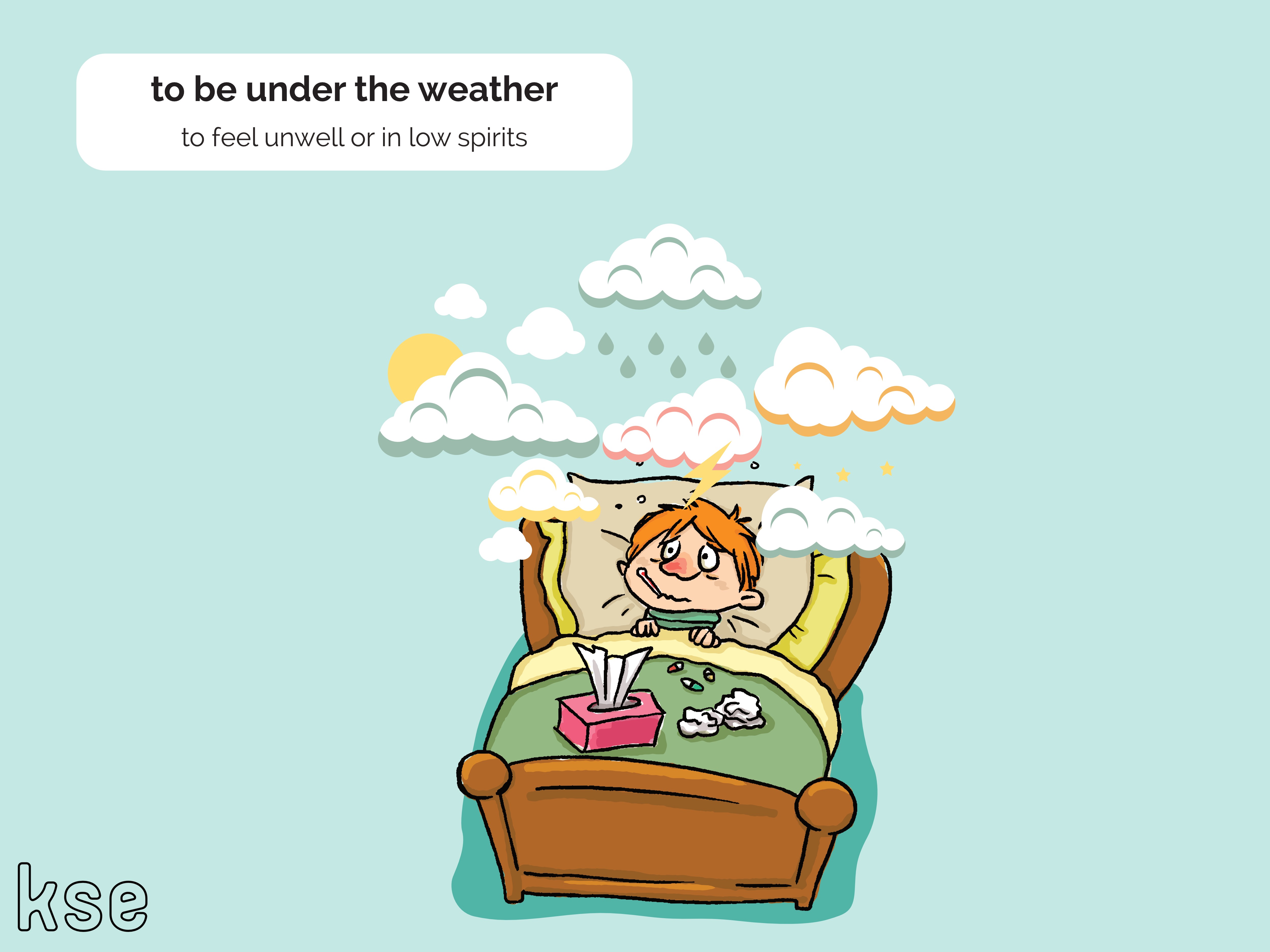
This is another truly common idiom. In fact, we saw this very same one in last week’s post. If you are or feel «under the weather», you are catching flu or a cold and you’d better stay in bed until it’s over. Also, it can mean that you’re in low spirits, that is, unhappy or depressed.
I didn’t go to the gym yesterday because I was a little under the weather.
I feel sick, have a painful headache and feel a bit under the weather, but I know that if I push myself and get out of bed I will feel better.
a storm in a teacup
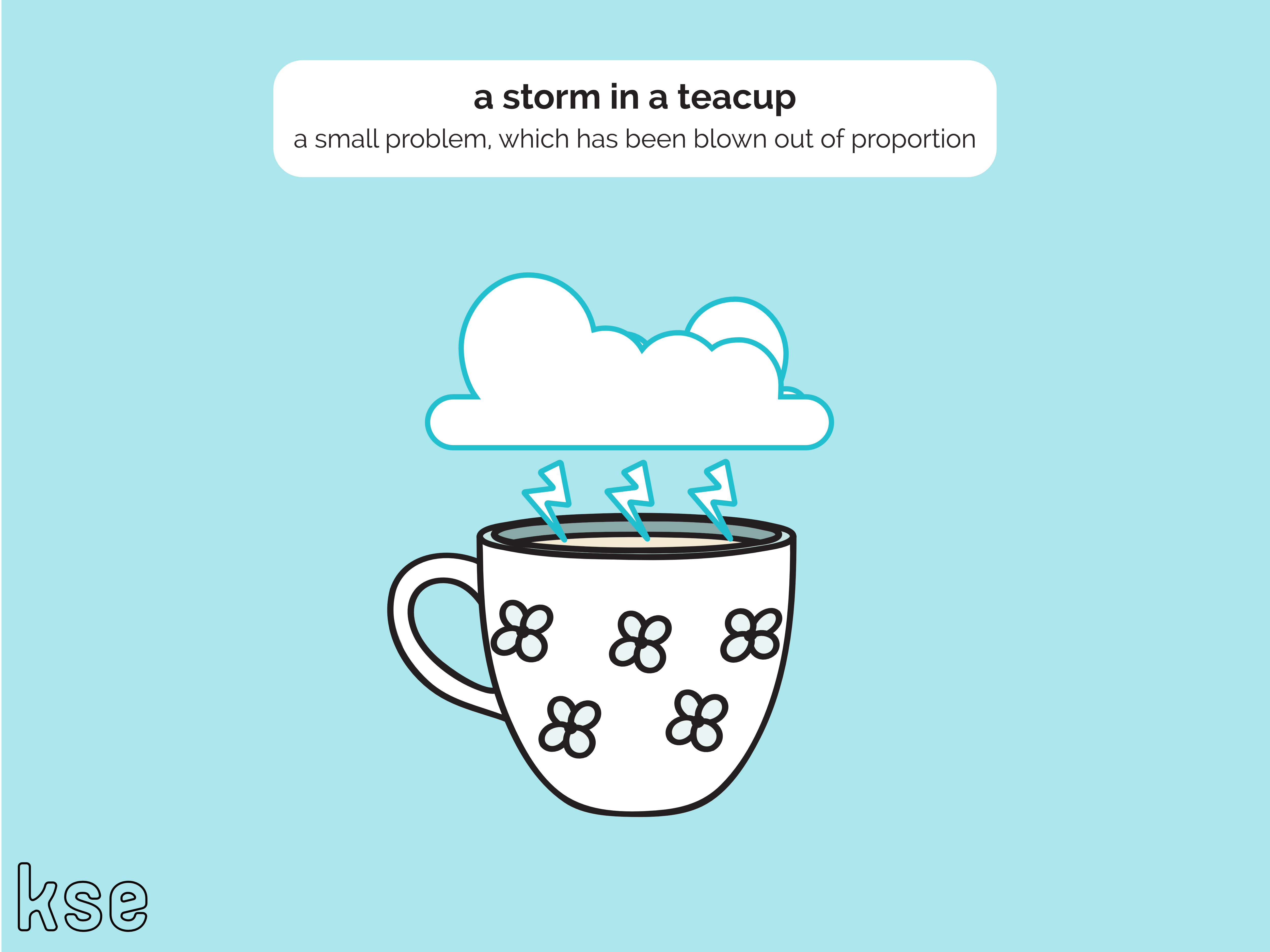
Have you ever ended up having a heated argument over something completely irrelevant? Or maybe you’ve been worried sick about something that you then realised was trivial? That’s exactly what «a storm in a teacup»: a small problem that has been blown out of proportion. This idiom is also a common one, as we saw last week, and it has different variations. For example, North Americans say «a tempest in a teapot», which is quite similar to the British idiom.
In my opinion, the whole thing is just a storm in a teacup.
All this controversy about same-sex marriages seems a storm in a teacup to me.
a rainbow chase
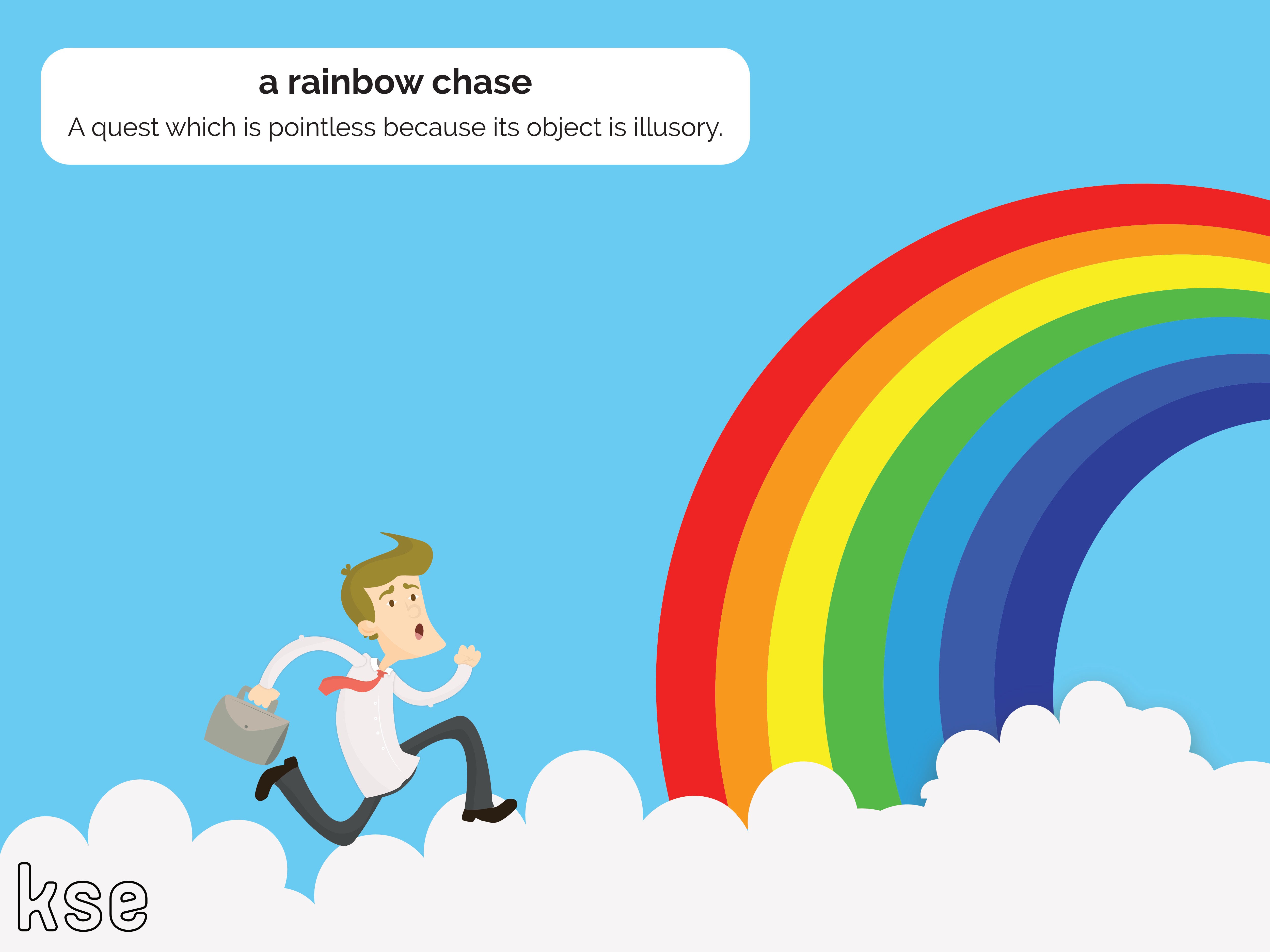
Have you ever seen a rainbow? Duh, obviously! Okay, but have you every seen a rainbow up close, like really close? Nope, I don’t think so. That’s because when you get to close you can’t see it, can you? Well, that’s exactly the meaning of «a rainbow chase»: if you’re chasing a rainbow, you’re after something that is impossible to get or that it doesn’t exist.
He thinks that buying the lottery will make him win some time, but I know it’s just a rainbow chase.
They’re giving their marriage another shot, though it’s probably just a rainbow chase.
head in the clouds
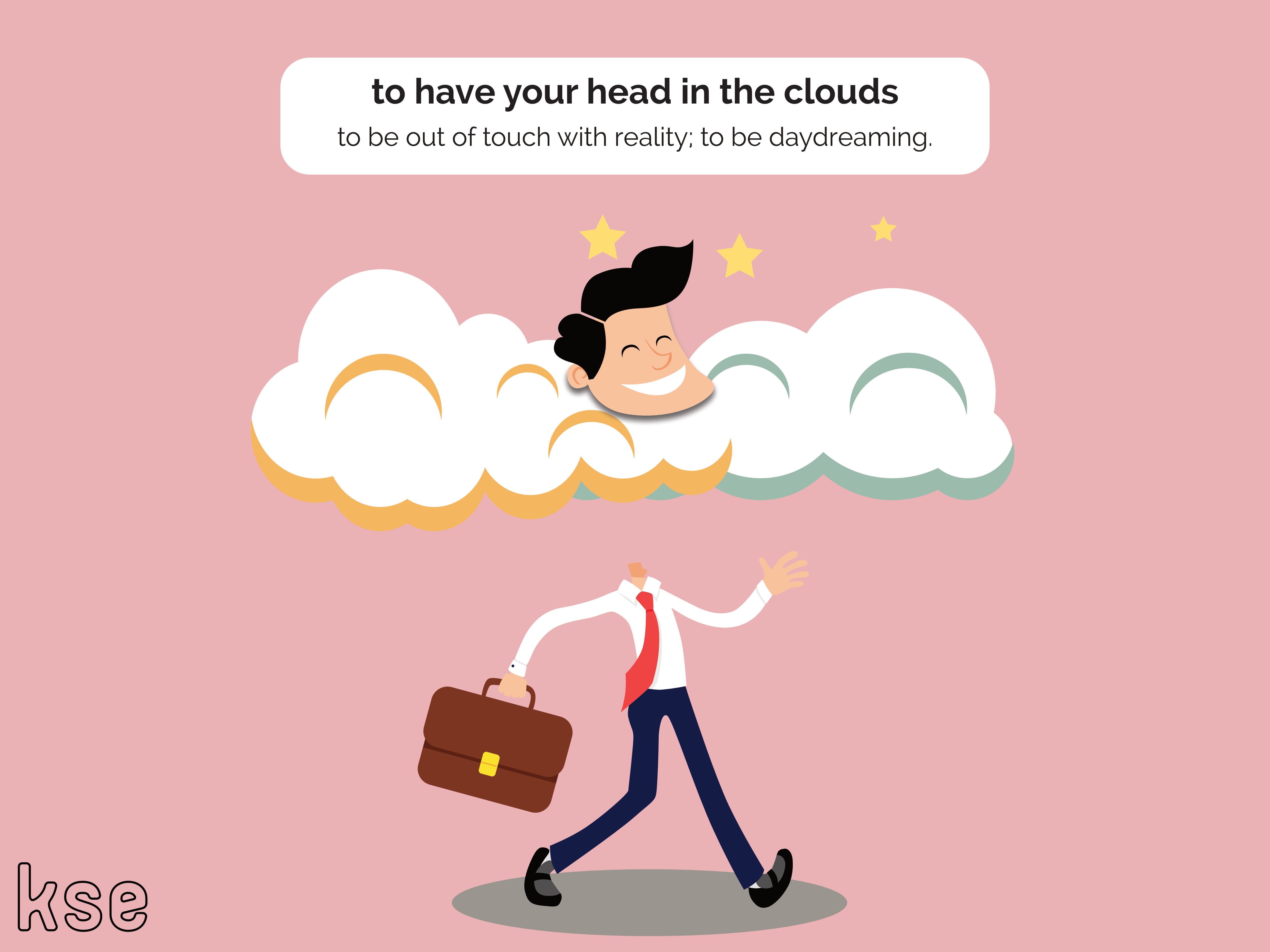
If you «have your head in the clouds», it means that you’re not being realistic or that you are daydreaming. Basically it means that you are out of touch with reality.
He can’t continue going around with his head in the clouds; he must be realistic about his problems.
You’ve been wandering around with your head in the clouds for almost a month, you look like you’re sleepwalking most of the time.
break the ice
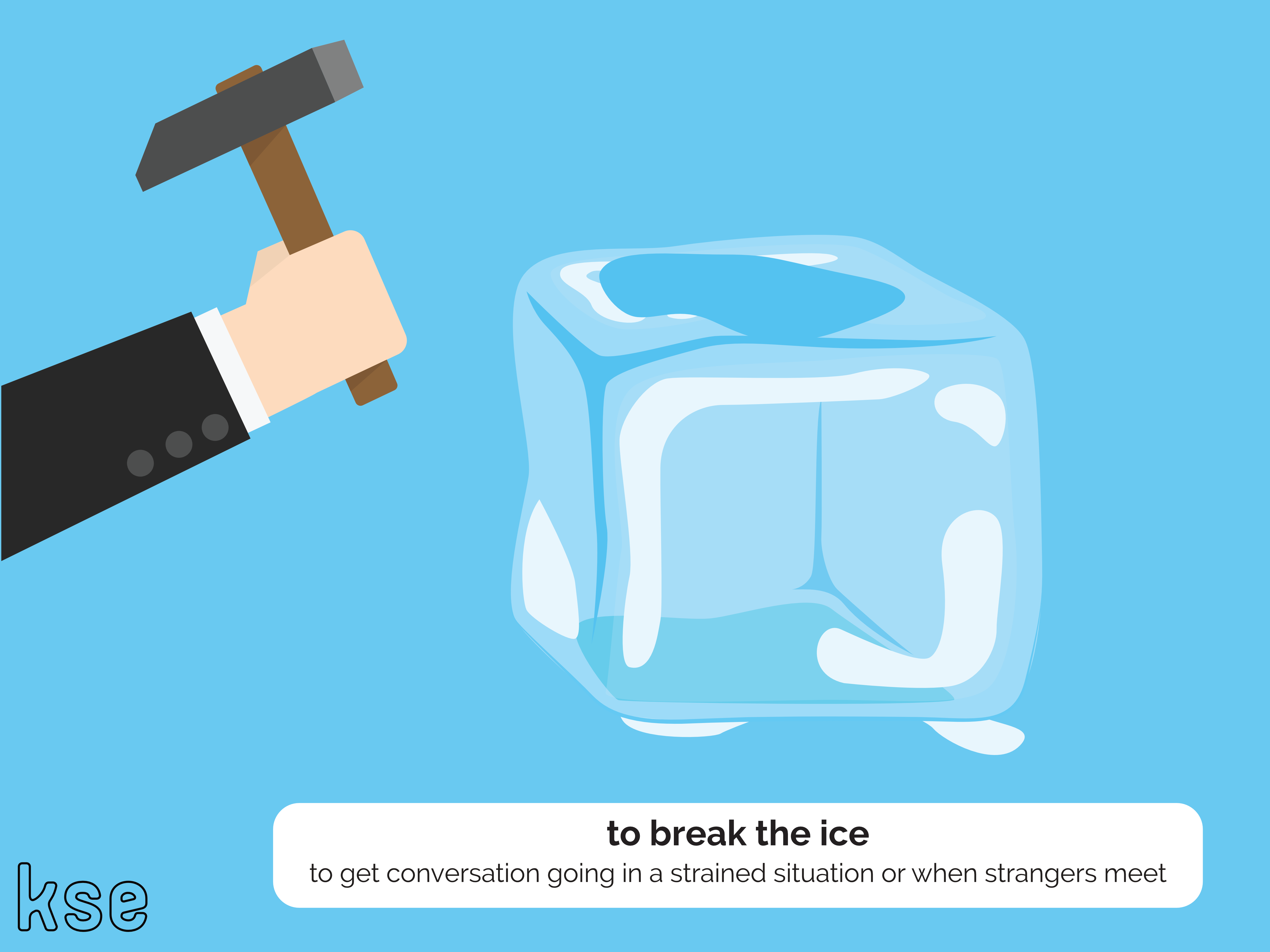
Do you know when you are stuck somewhere with someone who you don’t really know? The first few sentences you guys say will «break the ice», that is, they will put an end to the awkward silence and get you in a conversation. That’s what the idiom «breaking the ice» means.
A smile and a ‘Bonjour’ was usually sufficient to break the ice in any conversation.
He had to break the ice before she would really engage in a conversation.
There you go! 10 more great idioms you can add to your list. Cool, huh? And if you liked this post, like us on Facebook or share to unlock the download button below.
If you enjoyed this awesome post, please comment and share. And don’t forget to keep smiling!
6 comentarios en “10 Weather Idioms You Need to Be Using”
I love your story
Muy util!!
RAINING CATS AND DOGS es una expresión caída en desuso me temo. Si bien aparece en muchos libros de texto. En Inglés británico donde vivi más de 20 años y donde se habla del tiempo todo el rato . Te miran raro si la usas . Y cuidado con usar pissing off solo aceptada en círculos poco educados e informales
Genial
Tú sí que eres genial. Un saludo!
muy bien